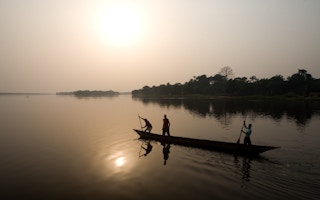At the COP27 climate talks in Egypt this week, world leaders have sought to accelerate efforts to halt deforestation by 2030 - in line with a pledge 140 countries made last year to preserve forests.
A new group of nations was created to boost momentum on that promise, along with new funding commitments, including 90 million pounds ($106 million) from Britain to support conservation of the Congo Basin - the world’s second-largest rainforest.
A more intact forest than regions like the Amazon, Central Africa’s Congo Basin saw deforestation increase by 5 per cent in 2021, according to a report released on Thursday by environmental group Climate Focus.
Marion Ferrat, a senior consultant at Climate Focus who co-authored the report, said the new pledges to protect the Congo Basin are encouraging, “but there needs to be funding that reaches communities on the ground.”
Many of the promises are “very high-level”, often lacking specific objectives and the mechanisms to track them, she added in a phone interview from the climate summit.
As COP27 delegates discuss how to reduce planet-heating emissions to avoid the worst impacts of climate change, conservationists at the meeting in Sharm el-Sheikh say the role of the Congo Basin as a “carbon sink” is being underestimated.
“
We need to figure out ways of helping to maintain the forest cover that we have right now, and do it in a way that is totally supportive to the economies of those countries.
Marie-Claire Paiz, Gabon country director, The Nature Conservancy
Carbon sinks are natural areas, such as oceans and forests, that absorb carbon dioxide (CO2) from the atmosphere, helping curb global warming.
With its dense tropical peatlands, the Basin pulls around 4 per cent of global CO2 emissions out of the atmosphere each year, according to the Central African Forest Initiative.

















